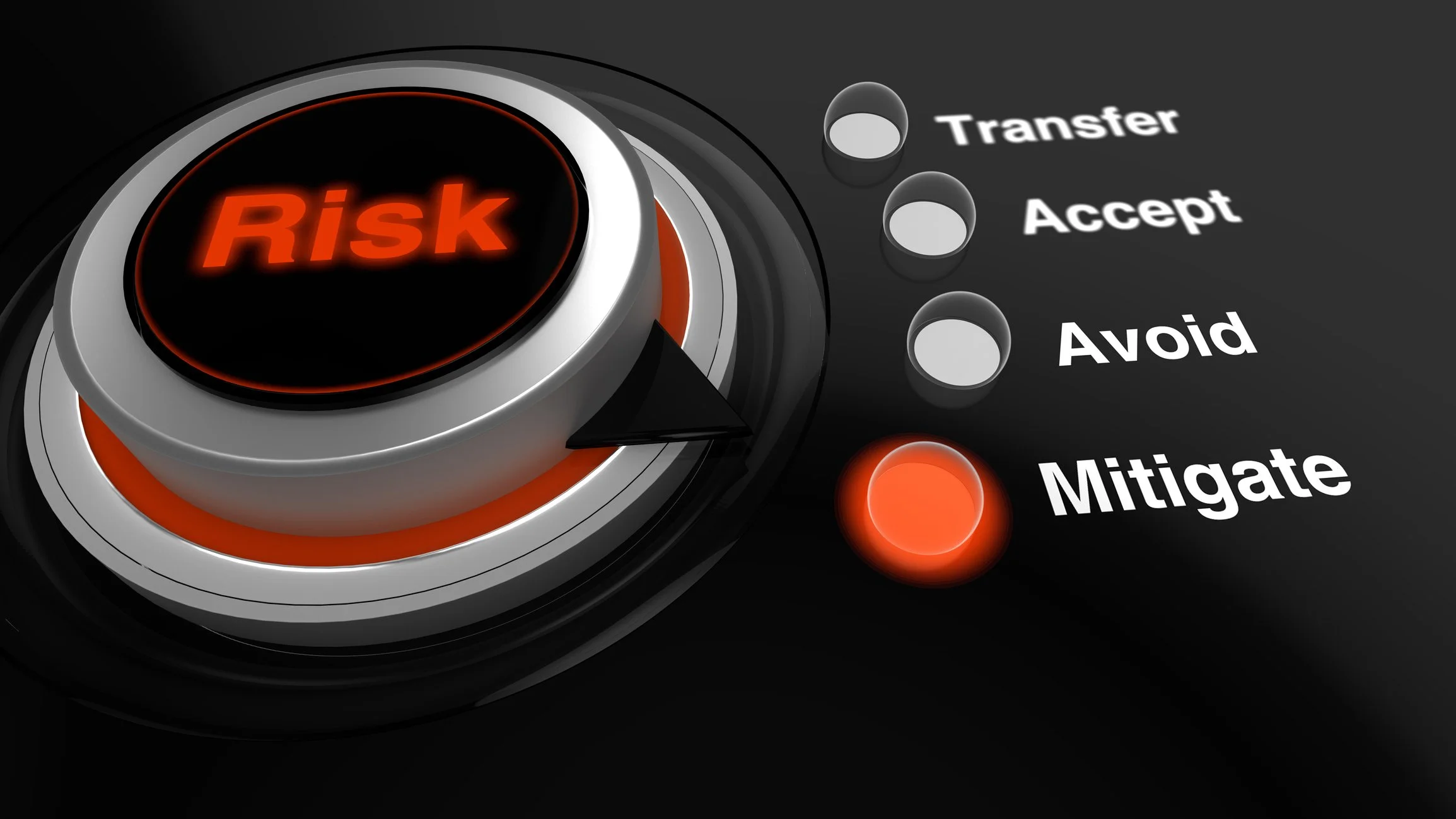Crisis Management Insights
Read up on our emergency preparedness advice for business owners and employees alike.

What Thanksgiving Teaches Us About Continuity Planning
Running a small business isn’t for the faint of heart. Equipment failed, supply deliveries were missed, employees got sick, and storms knocked out power. Yet the diner stayed open, day after day, because my dad understood—long before I had the words for it—that continuity isn’t paperwork.
Continuity is love.
It’s responsibility.
It’s showing up for your community no matter what.
And that, at its core, is what I feel Thanksgiving is all about.

A New Chapter in Our Journey: Introducing The Resiliency Institute
This month marks a milestone moment for all of us at The Resiliency Initiative — the official launch of our nonprofit organization, The Resiliency Institute.
What began as a dream to expand the reach of our work has now become a reality — a dedicated 501(c)(3) organization dedicated to building a more resilient world through learning, innovation, and storytelling.

Quarterly Resiliency Forecast-Fall 2025
The year may be winding down, but risks aren’t taking a break. In fact, three of them, cyber threats, supply chain disruptions, and the spread of disinformation, are showing up more often and in more connected ways than before. They aren’t new, but their speed and interconnectedness make them more urgent than ever. For businesses and organizations, this means bigger challenges and less room to wait. That’s why we’re highlighting them now — and sharing what you can do about each one.

Hurricane Katrina, Frisco Red, and the Power of Collaboration
📌 Lesson From the Field
I’ll never forget my first community meeting in rural Louisiana. I walked in with a thick binder of talking points, ready to “inform” people about FEMA’s recovery programs. I didn’t get more than five minutes in before a resident raised their hand and asked: “Why aren’t you asking us what we need?”
That moment stopped me in my tracks. It was the beginning of a shift—from telling to asking, from knowing to listening. I carry this lesson into every project today: true recovery begins when the people most affected are heard first.

What Every Leader Should Know About Cyber Resilience
A Five-Pronged Strategy for Resilience
To meet this challenge, we need to lead with intention and act collectively. Whether you run a small business, a school district, a hospital, or a municipality, there are steps you can take now.
1. Develop Public-Private Partnerships
Resilience is a team effort. Engage with your local emergency management agency or fusion center to establish coordination before a crisis hits. FEMA’s Public-Private Partnership Guide offers a strong foundation to build from.
Action Step: Reach out to your local emergency manager to explore collaborative preparedness planning.
2. Update and Test Emergency Plans
Every organization should have a plan that addresses cyber disruptions. Do your staff know what to do during a ransomware attack? Are you backing up your critical data? Do you have a continuity plan if your systems go offline?
Action Step: Run a cyber scenario tabletop exercise with your leadership team.
3. Support Unified Cyber Standards
Cyberattacks are global. The more fragmented our regulations, the more room we give threat actors to operate. Support efforts that encourage international cooperation and industry alignment.
Action Step: Advocate through your local chamber or industry associations for stronger cybersecurity policies.
4. Commit to Information Sharing
Speed matters in a crisis. Businesses and agencies that communicate openly about threats and responses can prevent larger-scale impacts.
Action Step: Join your sector’s Information Sharing and Analysis Center (ISAC) or regional cyber task force.
5. Invest in Innovation and Training
Leverage newer technologies like AI, blockchain, and advanced detection systems—but also ensure your people are trained and confident in using them.
Action Step: Budget for both tech upgrades and staff training in your next fiscal year.

Quarterly Resiliency Forecast-Summer 2025
As summer unfolds, many of us are packing our bags and heading out into the world—whether for business, adventure, or just a break from our inboxes. Travel can be enriching and restorative, but it’s also full of surprises (some better than others). Over the course of my career, I’ve traveled to more than 52 countries—and let’s just say, I’ve collected my fair share of travel stories. I’ve been detained, hospitalized, and abandoned on the side of the road more times than I’d like to admit! These experiences taught me a lot about what to do—and what not to do—when preparing for a trip.

Keeping Summer Fun (and Safe): A Note on Getting Prepared
Summer should be fun—BBQs, road trips, time off with family. But for many of us, it also marks the start of high-risk seasons: hurricanes in the South and East, wildfires in the West, and extreme heat just about everywhere.
As someone who has spent more than two decades in emergency management, I’ve learned that preparation doesn’t have to be complicated, and it shouldn’t get in the way of enjoying summer. In fact, being prepared helps protect the fun. When you have a plan in place, you can breathe a little easier knowing you’ve done what you can.
Whether you're leading a business, managing a team, or just looking out for your family, here are a few things to keep in mind as the season kicks off.

More Than a Message: Becoming the Trusted Source in a Crisis.
In the middle of a crisis, people don't just look for information—they look for someone they can trust. Building that trust starts long before the headlines. Here's how you can strengthen your brand's voice and be the steady hand your audience needs when it matters most.

Quarterly Resiliency Forecast-Spring 2025
#CompassionateCareYourself
Step 1: Model the behavior you want to see. Your team is watching—not just your words, but your actions. If you want them to prioritize their well-being, you have to show them what that looks like. That means logging off when you say you will, taking actual vacations, and honoring your own boundaries.

Future-Proof Your Business: The Resiliency Academy Advantage.
Key Features of the Academy:
Real-World Learning: Hands-on exercises, case studies, and crisis simulations.
Industry-Recognized Certification: Attendees earn 16 Continuing Education Units (CEUs) applicable toward ASIS security certifications, DRII recertifications (CEAP number 6.0), and IAEM’s Certified Emergency Manager (CEM) accreditation. These 16 CEUs provide a valuable opportunity for professionals seeking to maintain their credentials and demonstrate their expertise in crisis management.
Led by Industry Experts: Our sessions are curated by professionals who have led crisis management for organizations such as Disney, Walmart, American Airlines, and UCLA.

What Andy’s Cow Patty Palace Taught Me about Community and Resilience.
But Andy’s was much more than a diner. It was a community hub. Locals started their mornings there with coffee and conversation, caught up on town gossip, bartered for goods, and even played poker (where the loser had to drive my sisters and me to school). Growing up in that environment, I came to understand how central small businesses are to the fabric of a community. When my dad was sick or when snowstorms or power outages hit, the diner couldn’t open. That didn’t just mean no income for the day; it left a gap in the community. Regulars missed their routine. Conversations and connections were put on pause. Everyone who relied on Andy felt the ripple effect—not just us, but the butcher who provided our meat, our dairy supplier, and the list goes on.

Quarterly Resiliency Forecast-Winter 2024
"Resilience isn’t just about weathering the storm—it’s about anticipating it, adapting to it, and emerging stronger. In today’s complex landscape, organizations that prioritize preparation and collaboration will lead the way through uncertainty." – Andrea Davis, President & CEO, The Resiliency Initiative.

Your Holiday Safety Briefing
1. Know Your Risks and Create Simple Action Steps
Prepare for the basics:
Fire: Do you know your evacuation route? When was the last time you checked your smoke alarm batteries?
Power Outages: What’s your backup plan if the power goes out halfway through cooking the turkey? (OR do you have a backup pre-cooked turkey somewhere? I can neither confirm nor deny doing this…)
Natural Hazards: My hometown occasionally experiences earthquakes. They’re rare, but when they happen, my family tends to panic like headless turkeys. To prepare, I always review “Drop, Cover, and Hold On.”
Pro Tip: When my nieces and nephews were younger, they loved running through the house to find the best “safe spots” during our earthquake drills. It’s a surprisingly fun pre-dinner activity!
Internet Meltdowns: Slow internet can lead to big meltdowns. Break out the old board games early — it’s a lifesaver.

What’s in Your Mental Health Toolkit?
Building resilience takes time, and what works is unique for each of us. But every step we take, every tool we add, strengthens us for the challenges ahead. So, what’s in your mental health toolkit, and how are you taking steps to fortify your resilience?

Quarterly Resiliency Forecast-Fall 2024
The Preston Resiliency App redefines emergency preparedness, providing instant access to customizable emergency responses and procedures. It streamlines responses to crises such as fires, active assailants, and power outages.

Critical Training for Active Assailant Response: A Personal Account and The Resiliency Initiative’s Mission
I've spent many years in the emergency management field, designing training programs and responding to every type of hazard imaginable—countless fires, floods, hurricanes, earthquakes, explosions, train derailments, and even cyber hacks and ransomware attacks. Yet, there is one type of incident that cuts deep every time: an active shooter situation. For me, these are the most mentally taxing to manage, especially from the vantage point of being in an Emergency Operations Center, where I often watch the tragedy unfold from a distance, helpless to intervene. The harsh reality is that most active shooter incidents are over in less than five minutes. In those moments, all I can do is hope that the training we provided takes hold, guiding those caught in the crossfire to safety.

From Y2K to CrowdStrike: Why Business Continuity Planning is Your Secret Weapon.
Operation disruptions and immediate revenue loss are not the only risks you need to consider. Think about the impact on your organization's brand if you do not have plans in place to respond quickly. Customers affected by a protracted business interruption are likely lost forever.

Quarterly Resiliency Forecast-Summer 2024
In today's rapidly evolving business landscape, risk planning is essential for every organization aiming to maintain operational continuity and achieve long-term success.

Tornado Reality Check: An Emergency Manager's Personal Experience and Preparedness Insights
I have responded to countless disasters of many different types, spent more hours than I have spent sleeping in some version of an emergency operation center or another and even had to use my life safety training, such as CPR, on more than one occasion. I would say that emergency response is part of who I am; even my initials are AED. However, though I have been in this field for half my life, I have always been the helper, NOT the one needing help.

The Imperative of Prioritizing Accessibility and Inclusion in Emergency Management Consulting
As the climate crisis escalates and many emergency managers are often in a constant state of response and recovery, more and more emergency management consultants have stepped in to assist in the preparedness and planning phase.
